The ‘Late Bloomer Lesbian’ Community Is Helping People Come Out Later In Life
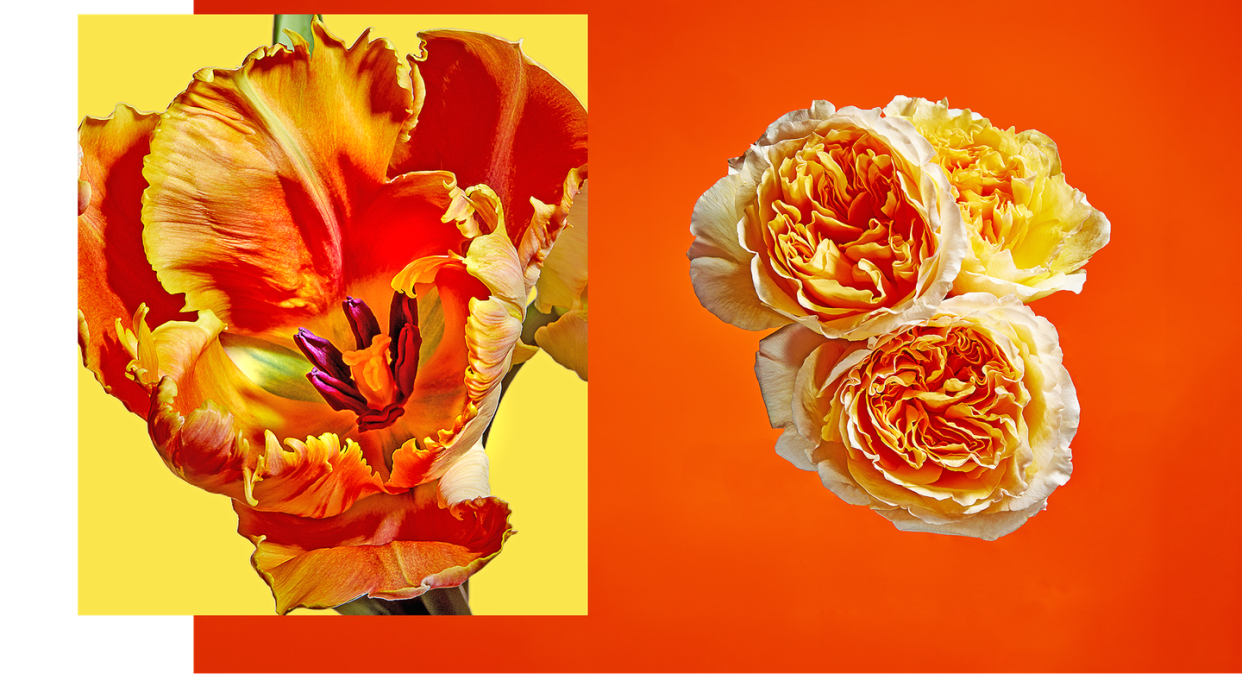
For decades, Susie Stonefield thought she was straight. She was married to a man, had three kids with him, and, from the outside, was enjoying a “perfect” marriage. Then, at 56 years old, she came out as gay—a process that involved a lot of fear, and even grief. But today, she’s happier than ever.
Susie, now 61, is not the only “late bloomer” who discovered her sexuality later in life. Suzette Mullen, 63, didn’t come out until her 50s. Paulette Thomas-Martin, 72, liked girls at a young age but didn’t come out until around 40. Bridget Bertrand, 48, came out six years ago. And both Allison Garcia, 43, and Marina Brochado, 42, started discovering their sexuality around ages 37 and 38, respectively.
As of 2023, nearly 8 percent of U.S. adults identify as queer—a statistic that has increased from 5.6 percent in 2020 and 3.5 percent in 2012, per Gallup. Many of those individuals are Gen Z and younger millennials who came of age during a time of increased LGBTQ+ visibility and representation (in film and TV, for example, and also in real life), and against the backdrop of the legalization of gay marriage in 2015.
“Being able to see folks living real, full lives in news, media, shows, and romance novels can show all kinds of folks that, ‘Oh, I can be out at this age. There’s a whole community behind me,’” says Christina DaCosta, chief experience officer for SAGE, an advocacy organization that supports LGBTQ+ elders. And as a millennial–Gen Z cusper, I’m among these ranks: I came out shortly after my 20th birthday, which could be considered early or late, depending on who you ask.
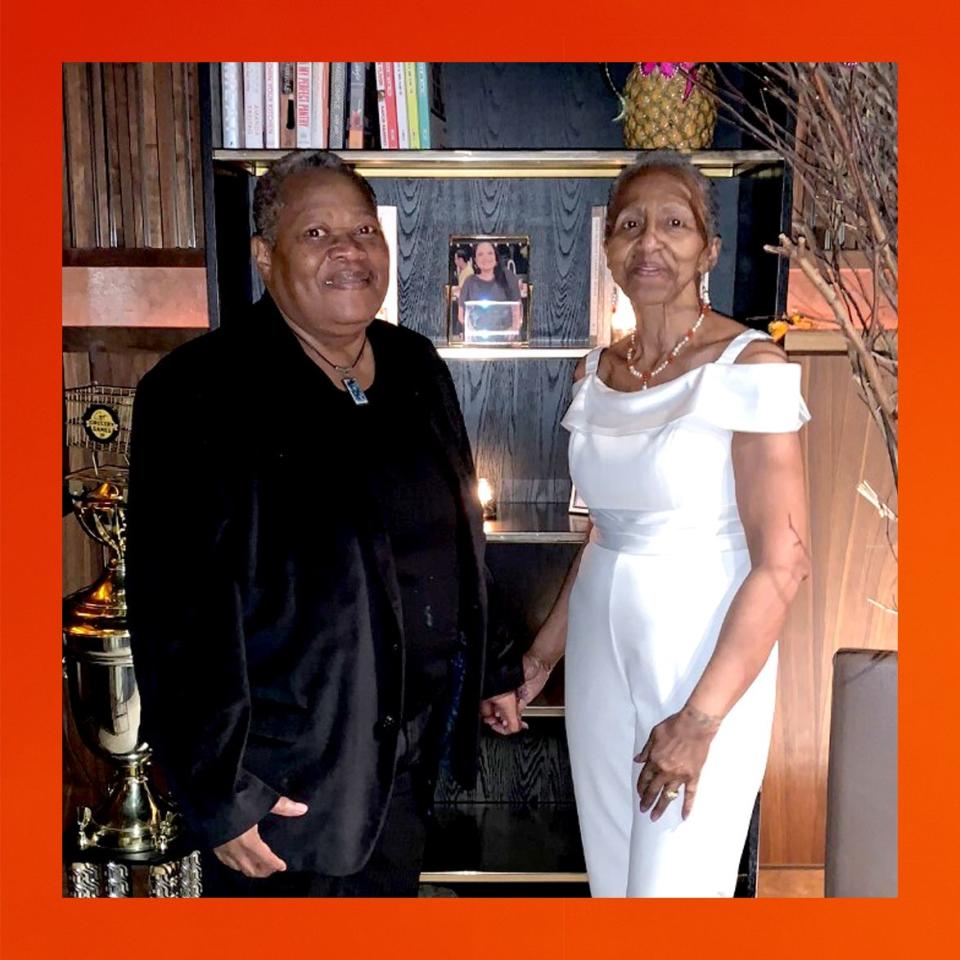
While younger queer women might take center stage on Instagram, in pop culture, and even at Pride parades, the rich community of those who discovered their queerness in their 30s, 40s, 50s, and even later often goes overlooked. Many of these late-blooming lesbians and queer women were married to men, either before or while they figured out their sexuality; a lot of them are parents. Some found love with other people who came out later in life, or with women who’d been out since childhood.
Throughout my conversations with these women, I was moved by how many were able to identify with—and embrace—their queerness despite growing up amid varying degrees of homophobia, as well as little to no positive representation in the media (and, often, in their personal lives). I swooned over their stories of falling in love, resonated with their experiences of finding community, and learned from their reflections on living authentically. Most notably, though, I was surprised and struck that we shared many of the same core experiences, despite coming out at different ages, in different places, and under wildly different circumstances.
Like Allison, I found comfort and joy in queer shows and romance novels before I came out. Like Marina, I somehow internalized the belief that kissing (or wanting to kiss) your friends as a teenager didn’t necessarily mean anything about your sexuality. And like Susie, I once had a thrilling, visceral, semi-spiritual moment of locking eyes with a person across the room and thinking, This is unavoidable for me, and my life isn’t going to be the same.
The interviews tapped into deep emotions—pain, relief, joy, and a complete lack of regret. “[My wife] and I talk about this all the time. If we had figured ourselves out sooner, we would never have met,” Allison says. “I feel like all of the things in my life built to where I am today.”
That doesn’t mean it was easy, though. Many of these women also shared fears, doubts, and the loneliness that came with feeling like the only person questioning their sexuality later in life—until they found community with other queer people, including fellow “late bloomers” online and in person.
This shared feeling of isolation is likely a result of the limited data about this community. LGBTQ+ data collection is “sorely lacking” in general, explains DaCosta. “We don’t even have an accurate census count of people who identify as LGBTQ+ in this country.” Anecdotally, though, “we definitely find that people are coming out in different ways in their later years,” DaCosta says. “A common refrain I’ve heard is, ‘I’m ready to live my life. I don’t want to die not being who I am.’”
Of course, there are unique struggles associated with coming out later in life too. Some of the women I spoke to had difficult experiences leaving their husbands, or fears about how they’d support themselves financially. Many worried about losing lifelong friends, alienating relatives, or upsetting their kids.
Joanne Fleisher, LCSW, author of Living Two Lives: Married to a Man and In Love With a Woman, had been married to a man for 12 years when she started to figure out her sexuality in the late 1970s. She was already a therapist, and after ending her marriage, she began working with married women who were questioning their sexuality or coming out. Back then, she felt she was one of very few professionals who had lived this transition herself and, therefore, was uniquely qualified to advise others.
“The process [of figuring out your sexuality and coming out] is extremely painful and uprooting, and there are a lot of losses in the process,” says Fleisher. But many of the women she’s connected with have also described the happiness and authenticity they eventually stepped into as something that’s “worth the struggle.”
“Almost everybody I have ever talked to feels like, as hard as the process was—and it is a hard process—there is such a sense of having landed,” Fleisher says. “Many people say it’s like coming home.”
Cultural Contexts
For a long time, being in the LGBTQ+ community was “such a hidden experience,” says Fleisher, and some of the women I spoke to didn’t realize that queerness was even an option for them. Others grew up watching LGBTQ+ folks get subjected to violence and discrimination, which can make it difficult for someone to identify and celebrate their sexuality at a younger age, DaCosta adds.
Paulette was raised to believe that it was okay for others to be gay, as long as she wasn’t. In hindsight, she knew she liked girls at age 7—and then, at age 16, a girl kissed her. “I just knew that, one, I was scared. And two, I liked it,” she says. Even after she married a man, had kids, and moved to Hawaii, she knew she liked women; the thought would crop up when she looked at pictures or watched movies. Still, she thought, Having children and a family, how can I be gay? Gay women don’t give birth to children. [There was] a lot of lack of knowledge and understanding.”
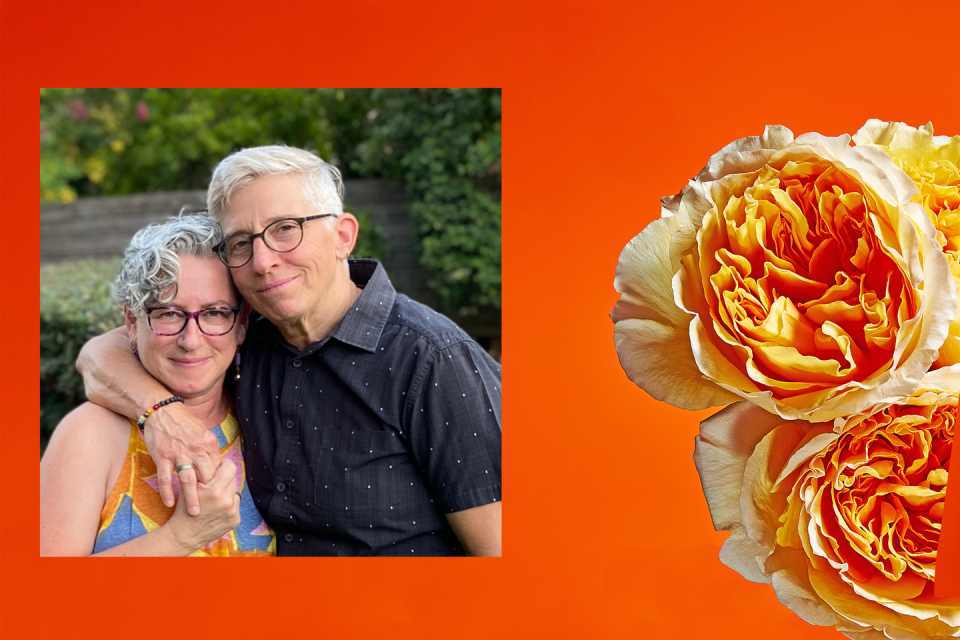
Marina also crushed on and kissed girls in high school but didn’t necessarily question her sexuality. She was born in Brazil and moved to a “very conservative part” of Texas at 14, where she had a traditional Christian upbringing and saw a very prescribed path for her life. “I thought, All girls think girls are attractive, and now, we do the thing where we stay with men and have relationships with men,” she says. Marina got married shortly after college and had a baby, which only made it easier to follow the path of least resistance: “Then, it becomes even more of not only doing what’s ‘next,’ but you also do what’s next for your kid and put yourself aside.”
When Allison was growing up in the ’80s and ’90s, she just didn’t see many lesbians or queer people anywhere—on her favorite sitcoms, in her neighborhood. When a lesbian couple moved into a house nearby, she remembers being told not to talk to them; in fact, no one on their block talked to them. She remembers thinking it was strange but obeyed her parents’ instructions.
Allison married in her mid-20s and became involved in a conservative church that espoused the idea that being gay was a sin. But she didn’t subscribe to her church’s homophobic teachings. “It didn’t track with how I knew I felt about God, and how I felt about these people,” she says. Still, it helped her stay “in denial” about her own queerness, she says.
Susie, on the other hand, grew up in a liberal environment but still didn’t think of queerness as an option. Her sex life with her husband was lackluster, but she just assumed that all women hated having sex with men. Yet when she started thinking about women, “it just felt scary and incredibly inconvenient,” she tells me. “And I just felt like everyone would feel sorry for [my husband]. Who breaks up a marriage when they have a great husband? I had a lot of friends with horrible husbands, so why would I end a marriage with a great guy for this? It felt incredibly selfish.”
Still, she found herself thinking about women…a lot. “It became this constant thought that was sort of driving me crazy,” she remembers. “And I tried really hard not to, but it just started to show up in all these places. I’m not really a secret person, but it started to occur to me, ‘You have a secret, and you’re not telling anybody what’s going on here.’”
The Catalyst Effect
In chemistry, a catalyst is a substance that speeds up a chemical reaction. It changes an environment just enough to speed along an outcome. A lot of late bloomers use the word catalyst to describe the specific crush, love interest, or moment that helped them realize their sexuality.
Bridget says her sexuality first started to “flicker” in college, when she was spending a semester in New York, but it wasn’t until she took an expressive arts workshop on healing through the body that the flicker turned into a full-blown flame. Prompted to paint a picture of her body and identify what she showed the world versus what she didn’t, the realization about her sexuality “just broke open,” she says. Everything started to click: crushes over the years, an openly queer friend she’d had a “deep friendship” with, the 11 Ani DiFranco concerts.
At that workshop, she met the woman who would become her first lesbian relationship. Bridget told her spouse right away and asked if he’d be open to her dating that woman. “Within short order, he agreed,” she says. “And then I said, ‘This is really who I am,’ and he wasn’t surprised at all.” She moved out two weeks later.
Susie’s catalyst was a woman at synagogue. “In the middle of the service, we were sitting in a circle, and I’m looking across the room at her. And she’s just staring at me. I’d never felt anything like it. I knew in that second; I felt this magnetic pull. I have to be with that woman,” she says.
Once Susie took the leap (with her husband’s blessing to explore her sexuality), everything fell into place. Her relationship with the woman was short-lived, but it propelled Susie forward: She ended her marriage, moved out, and came out as queer. “There was a part of myself I had just never met, who was so voraciously sensual and sexual…And once I met that part of myself, there was no turning back. I couldn’t ignore her anymore.”
For Suzette, the cataclysmic event involved writing. Around the time she became an empty nester, Suzette began focusing on her writing career. She found herself writing about an intimate moment with her best friend of 17 years: She had felt the urge to touch her, and then, once she did, “this electric charge went through my body.” Suzette shared the scene with her book coach, who told her, “That sounds exactly like someone falling in love.”
“When I saw her comment…I was like, ‘Oh, f*ck,’” Suzette says. “I had written it, and I knew it [meant] something, but it took someone else to actually name it. And then, once it was named, I knew it was true.”
Allison, also a writer, had a similar breakthrough moment. In 2018, at the end of a particularly bad year in her marriage, she sat down and started writing a novel. She wrote just three sentences—about a 37-year-old woman who was married to a man, had a kid, and was questioning her sexuality—and then realized, “Oh, shit. This is me.” She kept writing, stream-of-consciousness style, until she hit 80,000 words.
Finding New Roots
Often, after a catalytic moment comes a metamorphosis—which can look a little different for everyone, even if they’re on similar journeys. When Joanne Fleisher sees patients or receives messages from women online, she always reassures them that coming out is personal, and that it’s okay to take your time figuring out what you want to do. “There’s no right decision,” Fleisher says. Some people choose to stay in their marriage or open them up. Others end their relationship, but it takes a while.
Coming out—especially later in life—can bring a lot of loss. But it can also open the door for beautiful new communities, chosen families, and deep, soul-filling relationships. Allison was scared that coming out would ostracize her from people in her life. And she did, in fact, end up losing her best friend, who went to her old church. “But I gained all of these really wonderful people,” Allison says.
She joined a progressive, queer-affirming church and started connecting with other later-in-life lesbians online. She started dating, and suddenly, sex made sense. With her ex-husband, Allison had always felt “clumsy,” but with women, she “seemed to know exactly what to do.”
While seeking out queer community, Allison attended a potluck for older lesbians. She brought her then 4-year-old son and connected with the woman who is now her wife. “She was just very cute with my son. He was crawling over her, and it wasn’t fazing her,” Allison says. She lights up as she tells me about the woman’s calves, her tattoo, and their early conversations about the intersection of faith and sexuality. They got married in 2022.
Paulette also went through a metamorphosis after her divorce. Around age 40, she found solace at a domestic violence center, where she eventually began working. Completely surrounded by women in that environment, she started having the feeling of Oh, this is what I’ve been missing, she recalls.
She became involved in her local community in Hawaii, started advocating for same-sex marriage, and went to many events geared toward women. She surrounded herself with a strong support system and “just really started exploring how I felt and how I wanted to live.” In 2012, Paulette moved back to her childhood home of New York. While volunteering for SAGE, she met Pat, her future wife, who was promoting a dance event. They got married in 2018.
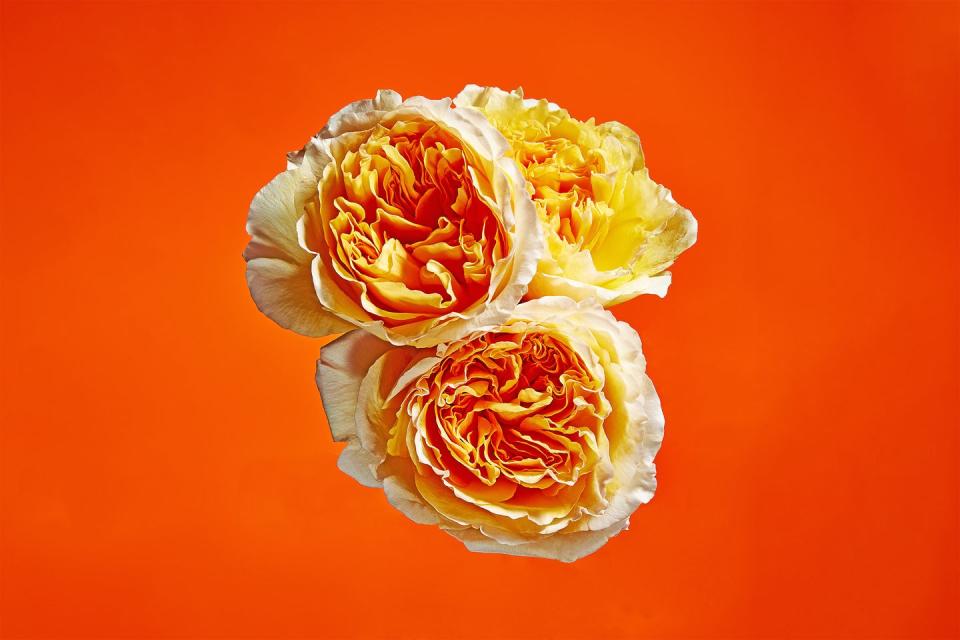
Helping Others Blossom
These late bloomers know that real-life communities can be hard to find, especially when you’re first questioning your sexuality. So, many of them sought out that connection and support online. After Fleisher ended her marriage, she talked about her experiences in magazine interviews and, in the early days of the Internet, launched a popular advice column called “Ask Joanne.” “I knew that married women wanted to be hidden and discreet about exploring their sexuality, so the Internet was a place where they could do a little bit of searching,” she says.
These days, the Internet is a massive resource for women who are questioning and reckoning with their sexuality. Almost every woman interviewed in this piece found solace, community, and information in some digital form. Marina regularly posts videos about her experiences as a late bloomer on TikTok. Suzette also found a “lifeline” through online support groups and eventually published a memoir to help others on their journey.
After Susie came out, she found a late-in-life lesbian support group on Facebook. She remembers sharing her photo and story in a post and receiving lots of affirming messages, compliments, and even flirtatious comments. “It felt so good and made me realize how I’d really been not trying to encourage that from my husband for a long time—and how it made me really uncomfortable, feeling his attraction to me,” she says. This kind of attention from women, however, was another story. “So that was very clarifying for me.”
Some of the women have also used their own stories as a way to help the next generation, including their own kids. “We groom our daughters from early on to live under this mindset that their purpose is to get men’s attention and get their approval, and that’s how you’re successful,” Marina says. But she intentionally parents her teenage daughter to help her understand what she wants and what makes her happy, not what society tells her.
And in a beautiful, interconnected moment, Bridget found that her own coming-out story helped her child feel more affirmed in his budding awareness of his queer and trans identity, encouraging him to come out a few years later.
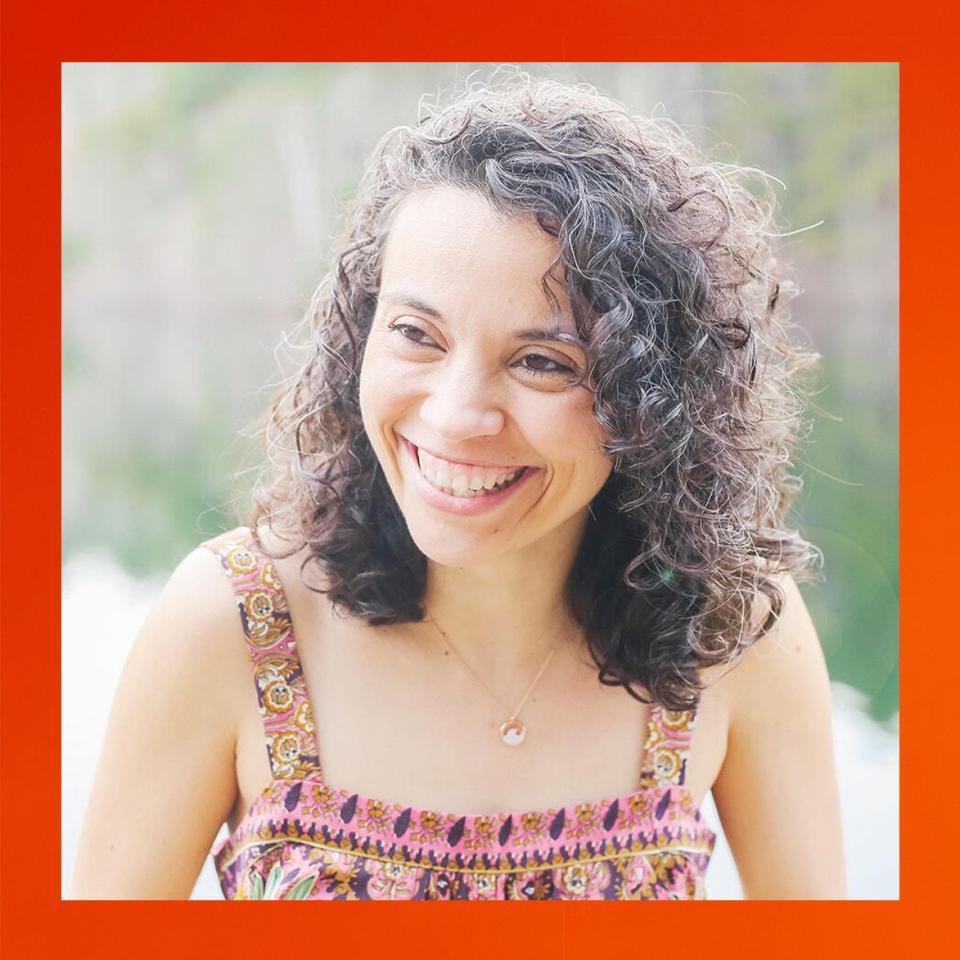
Meanwhile, Paulette and her wife have established and gotten involved in several nonprofits and organizations devoted to serving the LGBTQ+ community—including older LGBTQ+ folks and lesbians of color—in Harlem. Safe, nurturing, and community-focused places are extremely vital for queer folks who grew up at a time when it wasn’t always safe to be out. “Even the word queer, which I just find so liberating now, before, it was derogatory. It wasn’t to be said or used,” she tells me. “You could be killed, maimed—you still can today, but [there’s] freedom. But a lot of seniors are still locked in that same mindset.” That’s why creating community and support systems is so important, she adds.
Paulette thinks that if her younger self could see her life today—her marriage, community, and work—she “would rejoice and know that I am so loved,” she says. “She would think I am fabulous and ferocious and be so happy that I made the choices that I made before I left this earth.”
For a long time, Susie was guided by fear, but she’s now happy too. She’s in a safe, loving, emotionally deep, and passionate relationship with her fiancée. She’s even still “good friends” with the man she now calls her “wasband,” who still comes to her family events and gets along well with her partner.
“I feel so blessed to have had the opportunity to have two wonderful partners in my life. My kids are fine—they got to see their parents doing what was right for them,” she says. “ And I just find myself blossoming in every corner of my life now.”
You Might Also Like


